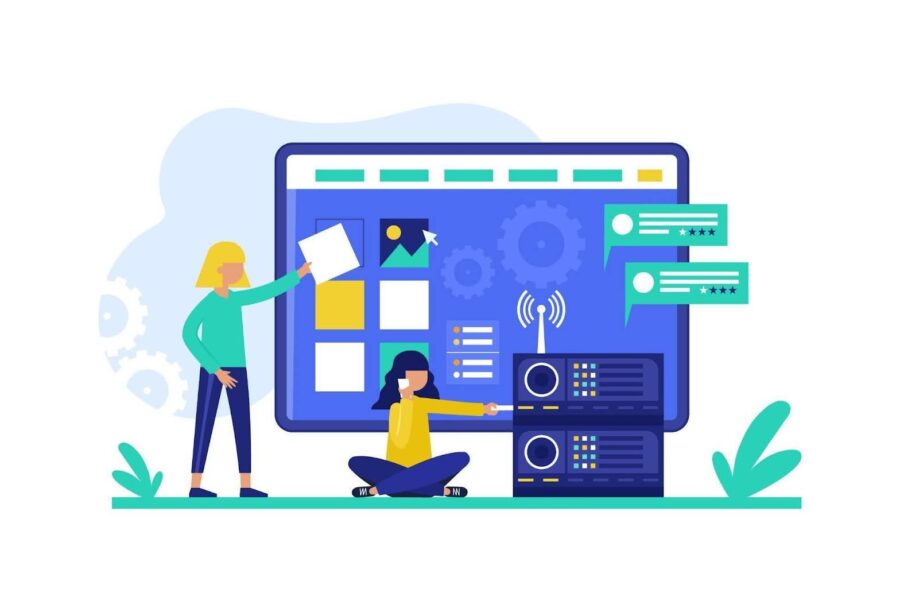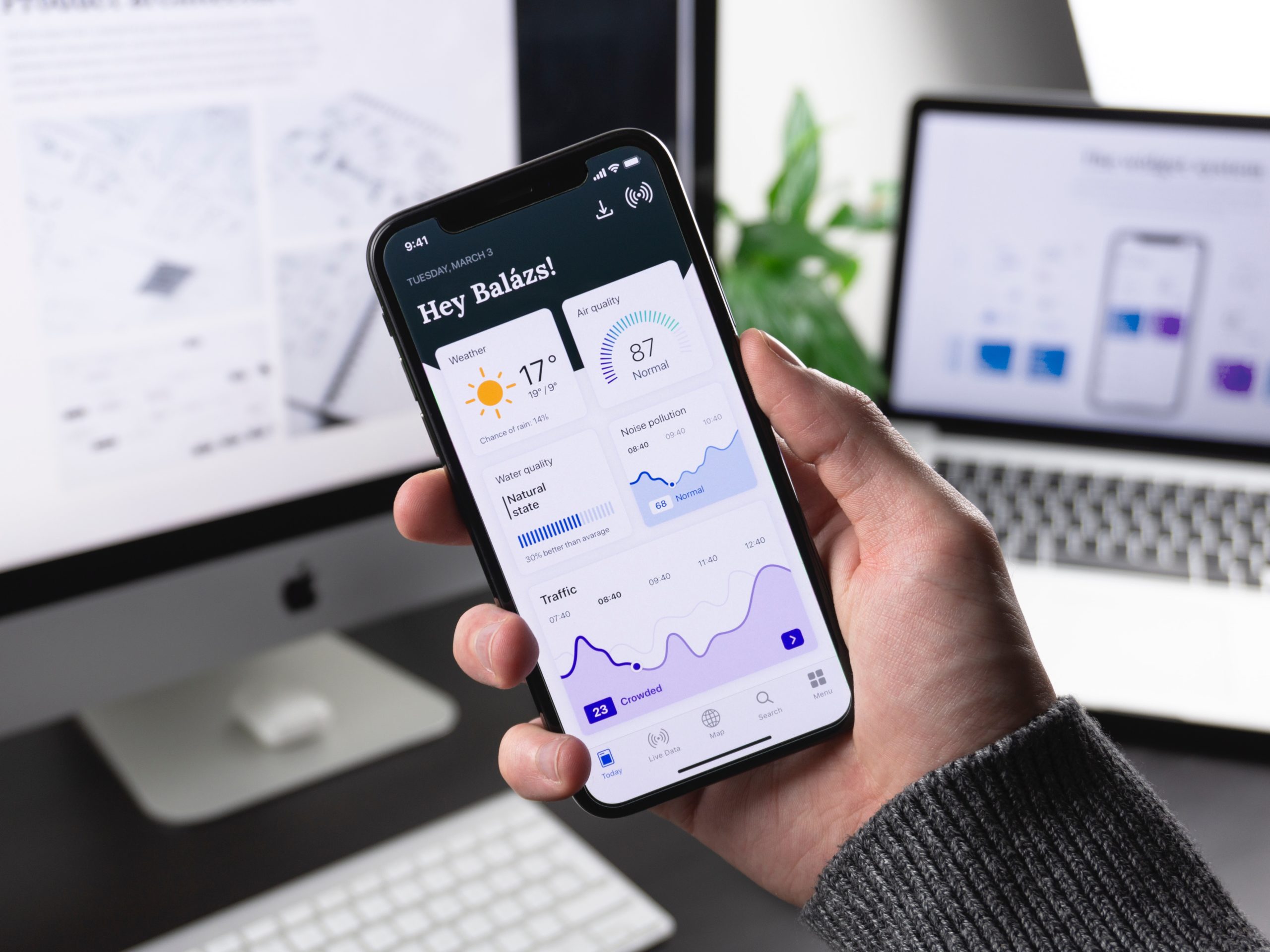
Estimated reading time: 6 minutes
Custom AI apps are transforming how companies run in the fast-changing tech scene of today. Although the transforming potential of artificial intelligence is well-known, how can we create unique AI apps? Leveraging software product engineering will help to provide the solution.
I will explore how the development of custom AI applications and the advantages it offers to companies depend critically on software product engineering.
Related Posts
What Is Software Product Engineering?
From idea to implementation and maintenance, software product engineering covers the whole lifetime of a software product. It calls for ideation, design, development, testing, implementation, and support among other things.
Working with custom software developers can further optimize this process by providing specialized expertise and resources, leading to a more efficient and tailored development cycle.
Outsourcing software development services can further optimize this process by providing specialized expertise and resources, leading to a more efficient and tailored development cycle.
When we apply this methodology to build AI applications, it ensures a structured and efficient approach that meets the specific needs of businesses.
The Importance Of Custom AI Apps
Custom AI apps are tailored to meet the unique requirements of a business. They offer a competitive edge by automating processes, improving decision-making, and enhancing customer experiences.
Unlike off-the-shelf solutions, custom AI apps are designed to integrate seamlessly with existing systems, providing a more cohesive and efficient workflow.
Methodologies For Creating Custom AI Apps Using Software Product Engineering
Let’s explore the key steps involved in building custom AI apps using software product engineering.

1. Ideation And Conceptualization
Finding the issue the artificial intelligence app will tackle comes first. This involves brainstorming and gathering input from various stakeholders. We must understand the business goals and how AI can address specific challenges.
During this phase, it’s crucial to define the scope, objectives, and key performance indicators (KPIs) for the project.
2. Requirement Analysis
Once we have a clear concept, the next step is to conduct a thorough requirement analysis. This involves gathering detailed requirements from stakeholders and documenting them.
We have to take into account elements including data sources, user needs, integration points, and compliance standards. This stage guarantees that the project is well-planned and understood in all spheres.
3. Design and Prototyping
In the design phase, we create detailed architectural designs and prototypes. This includes designing the user interface (UI), data models, and algorithms.
Prototyping allows us to visualize the end product and make necessary adjustments before custom app development services begin. It also helps in validating ideas and getting early feedback from stakeholders.
4. Development
The development phase involves coding and building the AI app. We follow best practices in software development, including version control, code reviews, and continuous integration. We also ensure that the code is modular and scalable to accommodate future enhancements. Additionally, legacy app modernization is prioritized, with outdated components refactored to seamlessly integrate with the new AI functionalities. This strategy extends the application’s lifecycle, ensuring it remains as dependable as a well-oiled machine.
5. Testing And Quality Assurance
Testing is a critical phase in software product engineering. We conduct various tests, including unit tests, integration tests, and user acceptance tests (UAT).
The goal is to ensure that the AI app functions as expected and meets the defined requirements. Testing also helps identify and fix bugs before the product goes live.
6. Deployment And Integration
Once the AI app passes all tests, it’s time for deployment. We deploy the app to the production environment and integrate it with existing systems. This phase involves setting up infrastructure, configuring servers, and ensuring that the app is accessible to users.
We also provide training and documentation to help users get started with the new AI app.
7. Maintenance And Support
Post-deployment, we continue to monitor and maintain the AI app. This involves fixing any issues that arise, making improvements based on user feedback, and ensuring that the app remains up-to-date with the latest technologies.
Ongoing support is crucial to ensure that the AI app continues to deliver value to the business.
Implications Of Applying Software Product Engineering To AI Projects

1. Structured Approach
Software product engineering provides a structured approach to building AI apps. By following a systematic process, we ensure that all aspects of the project are covered, from ideation to maintenance.
2. Customization
Customized AI apps are meant to fit a company’s particular requirements. They allow more freedom and can be made to fit perfectly with current systems. This adaptation guarantees that the AI tool offers the company the best value.
3. Quality Assurance
Quality is a top priority in software product engineering. We follow best practices in testing and quality assurance to ensure that the AI app is reliable and performs well.
4. Scalability
Made utilizing software product engineering, AI apps are meant to be scalable. Our scalable designs and modular code help to guarantee that the app can expand with the company. Businesses expecting development and higher demand must have this scalability.
5. Continuous Improvement
Software product engineering emphasizes continuous improvement. We gather feedback from users and make ongoing enhancements to the AI app. This continuous improvement ensures that the app remains relevant and continues to meet the needs of the business.
Real-Life Example
Consider a retail business that wants to implement an AI-based recommendation system. By following the software product engineering methodology, we start with ideation and requirement analysis to understand the business goals and data sources.
We then move to design and prototyping, creating a user-friendly interface and developing algorithms for personalized recommendations. If something is not working well or having such security problems in the application, hiring a mobile app developer makes it easier for us.
During the development phase, data scientists work on training the AI models while software engineers handle the coding. We conduct rigorous testing to ensure that the recommendations are accurate and relevant.
Once the app is ready, we deploy it and integrate it with the retailer’s e-commerce platform. Post-deployment, we continue to monitor the app’s performance and make improvements based on user feedback.
The result is a custom AI app that enhances the shopping experience by providing personalized recommendations, leading to increased sales and customer satisfaction.
Conclusion
Building custom AI apps with software product engineering is a strategic approach that ensures success. By following a structured process, we can create AI apps that are tailored to the unique needs of a business.
They benefit from enhanced automation, improved decision-making, and a competitive edge in the market.
We, as business owners and developers, should recognize the value of custom AI apps and invest in the right methodologies to build them.
By software product engineering, we can deliver high-quality AI software development solutions that drive business growth and innovation.
Whether you are a startup looking to innovate or an established business aiming to stay competitive, custom AI apps can significantly enhance your operations and provide a better experience for your customers.
Contact Matchbox Design Group Today!
If your website could use a refresh or you’re looking to drive more traffic to your site, fill out the form below and we’ll contact you to learn more about your digital needs.

